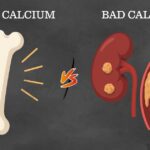Introduction: Why Brain Health Matters in Aging
Do you sometimes forget where you left your keys or struggle to recall a name? For seniors, these small lapses may feel like warning signs. While occasional forgetfulness is normal, growing concerns around memory loss, cognitive decline, and neurodegenerative diseases like Alzheimer’s have made brain health a top priority for older adults.
The good news? Research suggests that nutrition—particularly omega-3 fatty acids—plays a vital role in supporting senior cognitive health. These essential fats are often called “brain food” for good reason. They help maintain memory, focus, and mental clarity while also offering protective benefits against age-related decline.
In this article, we’ll explore how omega-3 for seniors contributes to brain health, the best sources to include in your diet, and practical tips for ensuring you get enough of this powerful nutrient.
What Are Omega-3 Fatty Acids?
Omega-3 fatty acids are a group of essential fats that the body cannot produce on its own. That means we need to get them from food or supplements.
The three main types of omega-3 are:
-
EPA (Eicosapentaenoic Acid): Supports heart health, reduces inflammation, and indirectly benefits brain function.
-
DHA (Docosahexaenoic Acid): The superstar for brain health—a structural component of the brain and retina, crucial for memory and learning.
-
ALA (Alpha-Linolenic Acid): Found in plant sources like flaxseed and walnuts; the body can convert a small portion into EPA and DHA.
Natural sources include fatty fish like salmon, sardines, and mackerel, as well as krill oil, flaxseeds, chia seeds, and walnuts. For seniors especially, DHA for brain health is critical because it directly supports memory and cognitive performance.
The Science Behind Omega-3 and Cognitive Function
A growing body of research links omega-3 intake with improved cognitive function in older adults.
-
Memory and Focus: Studies show seniors with higher omega-3 levels perform better on memory tests and have sharper focus.
-
Dementia Prevention: Long-term omega-3 consumption is associated with a reduced risk of Alzheimer’s disease and dementia.
-
Brain Protection: Omega-3 fatty acids help reduce inflammation, protect neurons, and improve communication between brain cells.
-
Slowing Decline: Clinical data suggests seniors who regularly consume omega-3 may experience slower rates of cognitive decline compared to those with low intake.
In short, omega-3 cognitive function benefits extend beyond memory support—they may act as a protective shield against age-related mental decline.
Benefits of Omega-3 for Seniors’ Brain Health
So, how exactly do omega-3s help seniors? Here are some of the most notable benefits:
Supports Memory Retention & Learning
DHA helps preserve memory, making it easier to recall names, events, and daily tasks.
May Reduce Risk of Alzheimer’s
Omega-3 intake is associated with a lower likelihood of developing Alzheimer’s and similar conditions.
Enhances Mood & Reduces Depression
Seniors often experience mood swings or depression due to chemical imbalances. Omega-3s play a role in stabilizing mood and reducing depressive symptoms.
Improves Blood Circulation to the Brain
Better circulation means the brain receives more oxygen and nutrients—essential for staying mentally sharp.
Simply put, omega-3 fatty acids are among the best supplements for senior brain health and healthy aging.
How Much Omega-3 Do Seniors Need?
There isn’t a one-size-fits-all recommendation, but experts suggest seniors should aim for:
-
DHA + EPA combined: Around 1,000 mg per day for general brain health.
-
ALA (from plants): 1.1–1.6 grams daily (though conversion to DHA/EPA is limited).
Dietary sources are great, but for those who don’t eat fish regularly, supplements can help fill the gap.
Balance matters too. The modern Western diet is often high in omega-6 fats (found in processed foods) and low in omega-3. Seniors should strive for a healthy omega-6 to omega-3 ratio to maximize benefits.
Best Sources of Omega-3 for Seniors
Foods Rich in Omega-3
-
Fish: Salmon, mackerel, sardines, herring.
-
Nuts & Seeds: Walnuts, flaxseed, chia seeds.
-
Plant Oils: Flaxseed oil, canola oil.
Supplements
-
Fish Oil: Widely available, rich in EPA and DHA.
-
Krill Oil: Easily absorbed, with added antioxidants.
-
Algae Oil: The best vegetarian/vegan source of DHA.
When choosing supplements, look for:
-
Purity (tested for heavy metals).
-
Sustainability (eco-friendly sourcing).
-
Certifications (third-party tested for quality).
Practical Tips for Adding Omega-3 to a Senior’s Diet
Add Fish Twice a Week
Include salmon, sardines, or trout in meals.
Snack Smart
Walnuts or chia pudding are great omega-3 rich snacks.
Smoothie Boost
Add flaxseed oil or chia seeds to morning smoothies.
Pair with Brain-Boosting Nutrients
Combine omega-3 with Vitamin D and antioxidants like blueberries for even better brain support.
Consult a Doctor
Especially before starting supplements—important for seniors on medication.
These simple habits make senior nutrition for brain health both enjoyable and sustainable.
Potential Risks and Precautions
While omega-3s are generally safe, seniors should be aware of possible side effects:
-
Blood Thinning: High doses may increase bleeding risk.
-
Digestive Issues: Some may experience nausea or fishy aftertaste.
-
Medication Interactions: Particularly with blood thinners or blood pressure meds.
That’s why professional guidance is crucial before starting any supplement regimen. Safety comes first in omega-3 use for elderly brain health.
Conclusion: Nourishing the Aging Brain with Omega-3
To recap, omega-3 fatty acids play a vital role in senior cognitive health:
-
They support memory and learning.
-
They may reduce the risk of dementia and Alzheimer’s.
-
They improve mood and brain circulation.
-
They help seniors maintain mental clarity and independence.
It’s never too late to support your brain with the right nutrients. Whether through food or supplements, omega-3s can help preserve memory and protect against decline.
So ask yourself: Are you getting enough omega-3 to protect your brain health as you age?
Adding more omega-3 to your diet could be one of the simplest yet most powerful steps toward healthy aging and long-lasting mental vitality.


